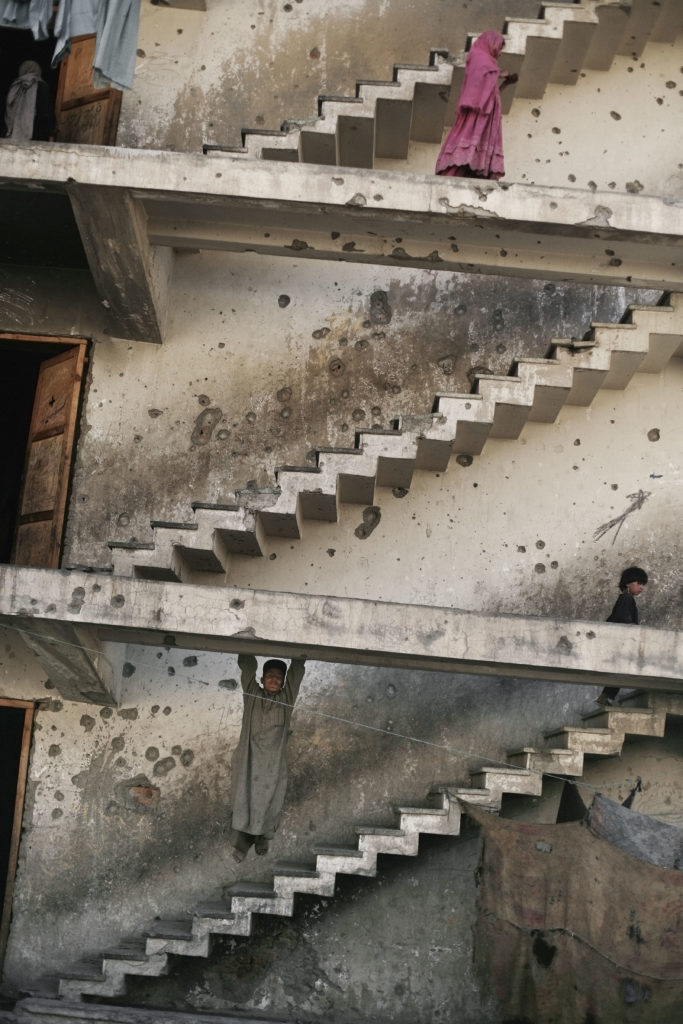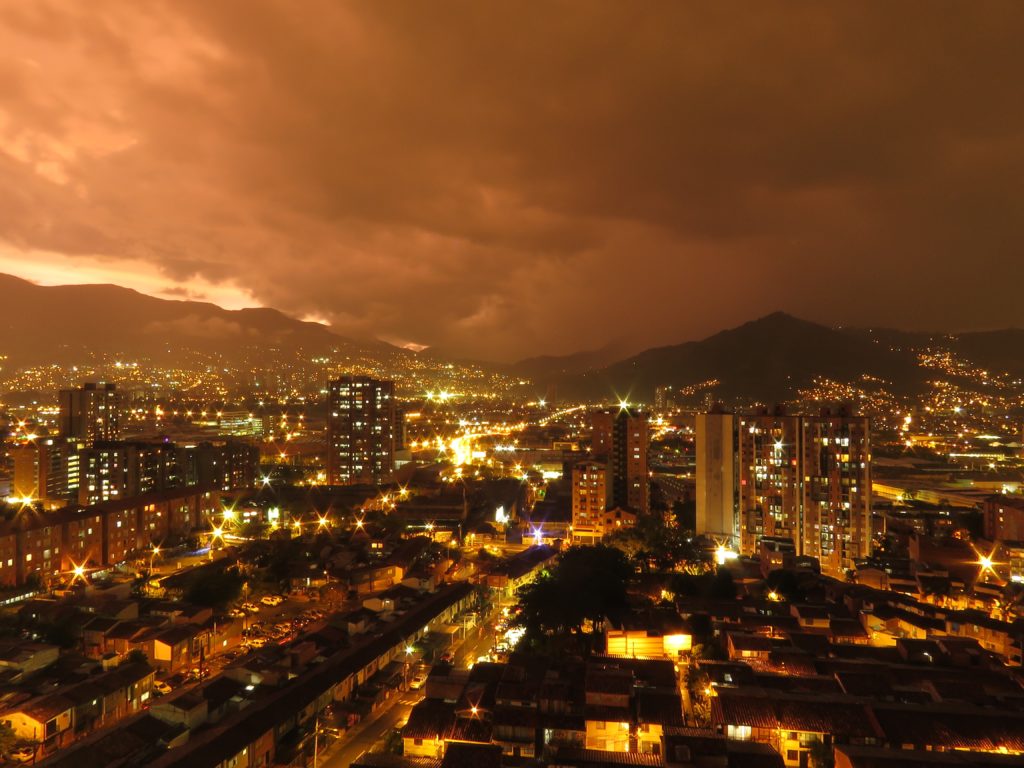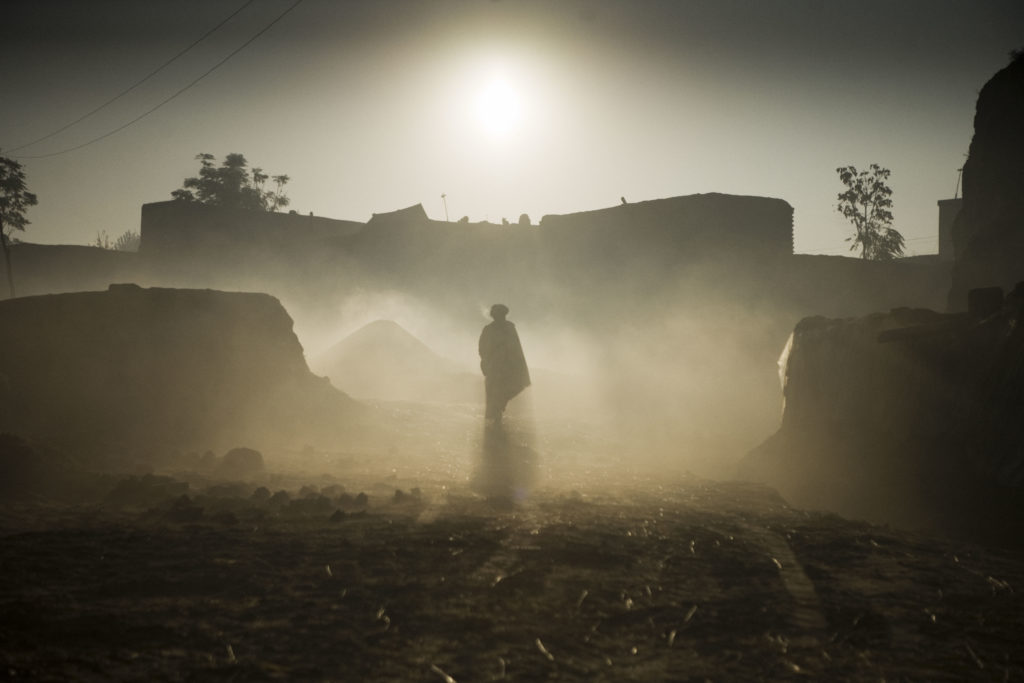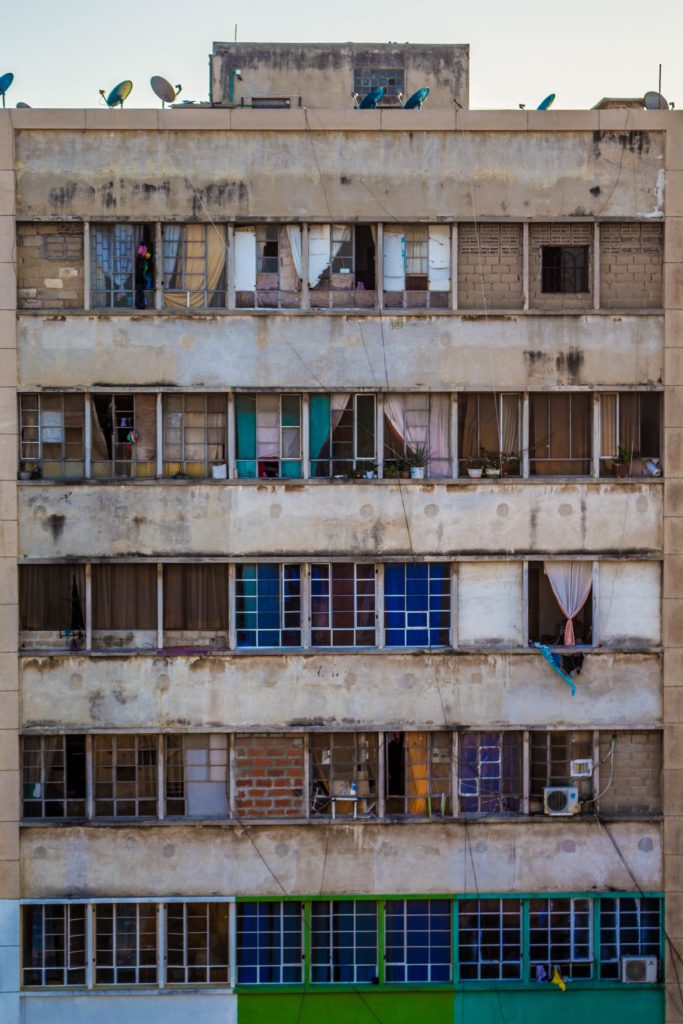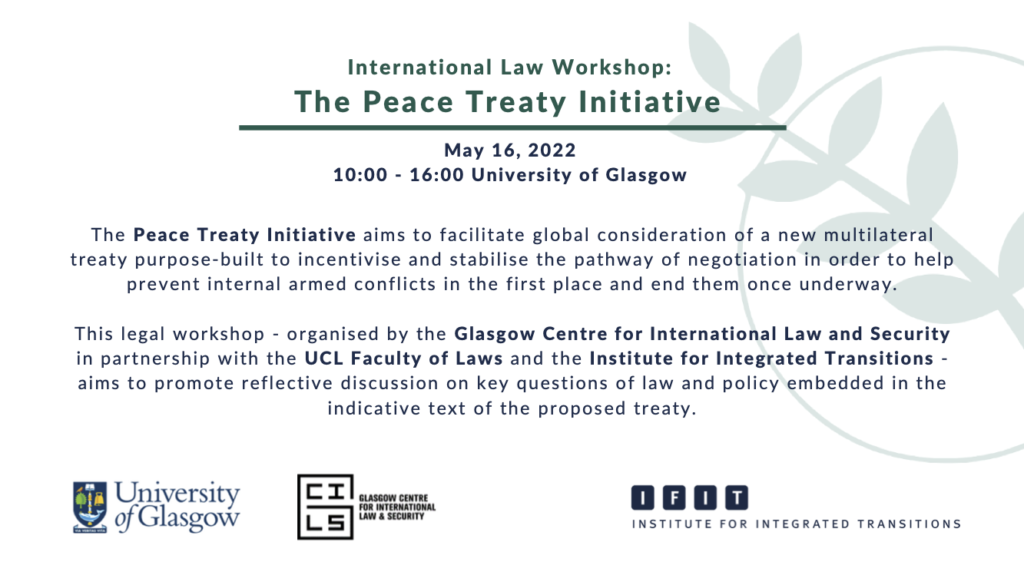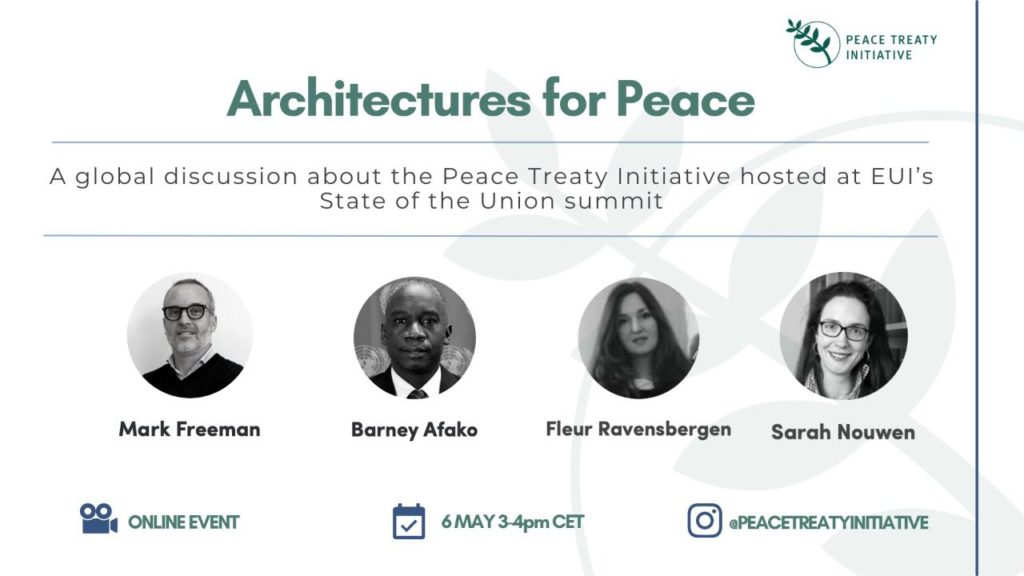Baba Jallow is former Executive Secretary of Gambia’s Truth, Reconciliation and Reparations Commission (TRRC). Following the end of that Commission’s mandate in 2022, he served as the inaugural Roger D. Fisher Fellow in Negotiation and Conflict Resolution at Harvard Law School for the 2023 – 2024 academic year.
Baba holds a Ph.D in African History from the University of California (Davis), a Masters in Liberal Studies from Rutgers University (Camden), and a BA in History and Political Science from Fourah Bay College, the University of Sierra Leone. He has taught African and world history at Creighton University in Omaha, Nebraska and La Salle University in Philadelphia, Pennsylvania.
Before going into exile in the United States in September 2000, Baba was a journalist and served as Editor-in-Chief of the Daily Observer and Independent newspapers in his home country of Gambia.
You may also be interested in
Elizabeth Salmón holds a PhD in International Law from the University of Seville and is a full professor of International Law at the Pontifical Catholic University of Peru (PUCP). She is the Special Rapporteur of the United Nations on the human rights situation in the Democratic People’s Republic of Korea. Additionally, she serves as a foreign legal expert to act as Amicus Curiae in the Special Jurisdiction for Peace (JEP) in Colombia.
Professor Salmón is the author of several publications in public international law, international human rights law, international criminal law, international humanitarian law, and transitional justice. She has served as the Executive Director of the Institute of Democracy and Human Rights of the same university (IDEHPUCP), director of the Master’s Program in Human Rights at PUCP, member of the Advisory Committee of the UN Human Rights Council, consultant to the Ministries of Justice and Defense of Peru, as well as to the Peruvian Truth and Reconciliation Commission, the United Nations, and the International Committee of the Red Cross. Additionally, she is a visiting professor and teaches specialized courses at various universities.
You may also be interested in
Dr Asli Ozcelik Olcay is a Senior Lecturer in International Law at the University of Glasgow, where she co-directs the Erasmus Mundus Master in International Law of Global Security, Peace and Development.
Her expertise spans the fields of public international law, international human rights law, international humanitarian law, international criminal law, and comparative constitutional law, with a particular focus on armed conflicts, peacemaking, transitional justice, and post-conflict constitutional reform.
She has been part of collaborative international projects on the role of youth in peace processes, the humanitarian-development-peace nexus, and the relationship between peacemaking and constitutional reform in Colombia, Ukraine and the Philippines. Her research has been funded by the Economic and Social Research Council, the Arts and Humanities Research Council, and the Global Challenges Research Fund.
Asli has consulted and collaborated with international organisations, civil society organisations, and independent international institutions in relation to human rights, peace mediation, and peacebuilding. She is a member of the Advisory Board of the Scottish Human Rights Defender Fellowship.
She holds an LLM in International Law from the University of Cambridge and an LLB from Bilkent University, Turkey. She was awarded her PhD by the University of Glasgow.
Working languages: English and Turkish
You may also be interested in
Galuh Wandita began working on peace and conflict issues in the 1990s in Indonesia, focusing on women’s health and human rights, community rights impacted by mining, with an emphasis on empowering local actors, during the authoritarian New Order regime. Together with a group of East Timorese (then under illegal occupation of Indonesia), she founded a women’s organization, Fokupers, dedicated to stopping violence against women in 1997.
Galuh was a humanitarian worker with Oxfam during the 1999 referendum in East Timor. In 2002-2005 she was appointed Deputy Director of Timor-Leste’s truth commission (CAVR). Together with CAVR’s executive director and senior staff, she designed and managed the fieldwork conducted by the CAVR district teams, and supervised the commission’s work on truth-seeking and victim support. Later on, she drafted key chapters in the commission report, “Chega!” (2005). She returned to Indonesia as a Senior Associate for the International Center for Transitional Justice, working on accountability in Indonesia and Timor-Leste.
In 2012, Galuh co-founded Asia Justice and Rights (AJAR) and continues to lead the organization as its Executive Director, managing programs and staff in Indonesia, Timor-Leste, Bangladesh, Myanmar and other countries. In 2014, she was a co-convener and member of a “citizen’s council” working with a coalition of 50 NGOs across Indonesia in a civil society-led truth-seeking process. She is co-founder and chair for Associacaon Chega Ba Ita, an NGO in Timor-Leste dedicated to supporting women survivors and conducting advocacy on the recommendations of the truth commission. As a member of the Working Group on the Stolen Children, she has led the initiative to find more than 160 survivors of childhood abduction from Timor-Leste (now living in Indonesia), reuniting 80 stolen children with their families.
She was appointed by Timor-Leste’s Prime Minister as a member of the international advisory council on the Centro Nacional Chega (CNC), a follow-up body with a mandate to preserve memory and assist survivors. She also is engaged as an advisor to the Aceh Truth and Reconciliation Commission, working with civil society designing its mandate (2008), supporting key activities in the early period of its establishment (2017), and as member of the writing/editorial team of its final report (forthcoming.)
Galuh holds a Master’s Degree in International Human Rights Law from Oxford University (2006). She completed her Bachelor of Arts in Sociology/Anthropology from Swarthmore College, PA (USA) in 1988.
You may also be interested in
Sarah Nouwen is a Professor of Public International Law at the European University Institute. She is on leave from the University of Cambridge, where she is a Professor in Public International Law and was for many years Co-Deputy Director of the Lauterpacht Centre for International Law and Fellow of Pembroke College. Nouwen is also an Editor-in-Chief of the European Journal of International Law.
Nouwen received a 2-in-1 LLB and LLM from Utrecht University, doing part of her degree at the University of the Western Cape and the University of Cape Town. She then obtained an MPhil in International Relations and a PhD in Law at the University of Cambridge, where she subsequently became a Research Fellow. Prior to assuming her lectureship at Cambridge in 2012, Nouwen worked in international diplomacy: at the Dutch mission to the United Nations, at the Netherlands Embassy in Khartoum, and as a Senior Legal Advisor to the African Union High Level Implementation Panel in Sudan. She also served as a consultant for the UK Department of International Development in Darfur and worked with an NGO in Senegal on microfinance.
She has published extensively on international criminal law, transitional justice and international law more generally. She is the author of Complementarity in the Line of Fire: The Catalysing Effect of the International Criminal Court in Uganda and Sudan (Cambridge University Press, 2013). Her article ‘As You Set out for Ithaka: Practical, Epistemological, Ethical, and Existential Questions about Socio-Legal Empirical Research in Conflict’ won the Leiden Journal prize for the best article published in 2013-2016. Nouwen also received a Philip Leverhulme Prize for her scholarship.
She is currently doing research on international law and peace negotiations, including on the meaning of the term ‘law’ as it is used in literature on law and peace negotiations and on developments in the field of law and peace negotiations. The working title of her new book is Peacemaking: What’s Law Got to Do With It?. She is a member of the Expert Advisory Group of IFIT’s Peace Treaty Initiative.
You may also be interested in
Yasmin Sooka is a leading human rights lawyer and the Executive Director of the Foundation for Human Rights in South Africa. The Foundation is the country’s primary indigenous grant maker, established by President Mandela’s government in 1996 and the European Union to fund the human rights sector in South Africa. Sooka chaired the government’s Steering Committee of the National Forum Against Racism, Racial Discrimination, Xenophobia and Related Intolerances, which is responsible for developing a National Action Plan to combat racism in the country.
A leading international expert in the field of transitional justice, Sooka served on the South African Truth and Reconciliation Commission from 1996-2001 and chaired the committee responsible for the final report from 2001-03. She was appointed by the United Nations to serve on the Truth and Reconciliation Commission of Sierra Leone from 2002-04. She is also a member of the Advisory Body on the Review of Security Council Resolution 1325.
In July 2010, Sooka was appointed to the three-member Panel of Experts advising the Secretary General on accountability for war crimes committed during the final stages of the war in Sri Lanka. The report was published in May 2011. She published two additional reports on Sri Lanka in 2014. She is the co-author of “The Unfinished War: Torture and Sexual Violence in Sri Lanka: 2009-2014” with the Bar Human Rights Committee of England and Wales and the International Truth and Justice Project, Sri Lanka. Sooka is also the co-author of an interactive report, “Five Years On: The White Flag Incident 2009-2014”, with the International Truth and Justice Project, Sri Lanka.
In March 2014, Sooka co-authored the African Union’s Policy on Transitional Justice. She has also assisted many governments in setting up transitional bodies such as truth commissions and has advised on reparation programs. She has also consulted on issues of transitional justice and gender.
Sooka was also appointed by the Secretary-General to a three-member Panel of Experts to advise him on the UN response to allegations of sexual exploitation and abuse of children by foreign military forces not under United Nations command in the Central African Republic as well as abuse of power by UN officials in their responses to the allegations
Sooka has been part of many advisory missions on transitional justice for the United Nations including Afghanistan, Burundi, Kenya, Nepal, and Uganda. In addition, she has consulted for the Federal Department of Foreign Affairs in Switzerland, and has participated in several missions including to Burundi, Libya, and Tunisia. She also served as the Inaugural Soros Chair at the School of Public Policy at the Central European University in Budapest.
Working languages: English and Afrikaans
You may also be interested in
Tecla Wanjala is the Director of the Social Healing and Reconciliation Program of the Green String Network in Nairobi. Prior, she served as one of the Commissioners of the Truth, Justice and Reconciliation Commission Kenya (TJRC-Kenya). Moreover, she was the Relief and Rehabilitation Coordinator for victims of the ethnic and land clashes in 1991/1992 under the Catholic Diocese of Bungoma and the National Coordinator for the Peace and Development Network. She also acted as an in-house Consultant in Peace Building and Post Conflict Reconstruction with the Japan International Cooperation Agency for Eastern and Southern Africa.
Tecla holds a PhD in Peace and Conflict Studies from Masinde Muliro University of Science and Technology. She attained a Master’s degree in Conflict Transformation from the Eastern Mennonite University in Harrisonburg in Virginia and holds a diploma in Social Development Work from Embu Development Institute.
You may also be interested in
Professor Slye is a Professor of Law at the Seattle University School of Law. He is an internationally-recognised expert in international criminal law, transitional justice, and international human rights law, and is co-author of a best-selling casebook in the United States, International Criminal Law and Its Enforcement (Foundation Press). He taught in the clinical program at the Yale Law School and served as the Associate Director of the Orville H. Schell, Jr. Center for International Human Rights at Yale Law School.
Professor Slye has represented victims of human rights violations before US federal courts under the Alien Tort Claims Act, and before various UN human rights bodies. He has provided advice to countries in their efforts to address a legacy of gross violations of human rights, including Tunisia, Colombia, Burundi, and Uganda. He is a legal advisor and board member of the Documentation Center of Cambodia, which has addressed the legacy of the atrocities committed by the Khmer Rouge. He was a legal consultant to the South African Truth and Reconciliation Commission from 1996 to 2000. From 2009 to 2013, Professor Slye served as one of three international commissioners (and the only commissioner not from Africa) on the Kenyan Truth Justice and Reconciliation Commission.
Professor Slye received his B.A. from Columbia University, his M.Phil in International Relations from the University of Cambridge, and his J.D. from the Yale Law School.
You may also be interested in
As the former Diplomatic Correspondent specialised in humanitarian action and international justice for the daily newspapers Libération (Paris) and Le Temps (Geneva), Pierre Hazan has been a close observer of many conflicts, including in the former Yugoslavia, Rwanda, and the Middle East. As a Fellow at Harvard Law School (2005) and the United States Institute of Peace in Washington D.C. (2006), his published works include Justice in a Time of War (Texas A&M), Judging War, Judging History; Behind Peace and Reconciliation (Stanford University Press, 2010), and La Paix contre la Justice? (AVE/GRIP, 2010). He is also the editor of The Tenth Anniversary of the International Criminal Court, the Challenges of Complementarity (Politorbis, Swiss Ministry of Foreign Affairs, 2012).
In recent years, Pierre has collaborated with the United Nations Office of the High Commissioner for Human Rights. In 2013, he was also a U.N. expert with the Special Rapporteur in the field of cultural rights for two reports, respectively the Report on the writing and teaching of history (A/68/296) presented to the U.N. General Assembly in Autumn 2013 in New York, and the Report on memorialization processes (A/HRC/25/49) presented on 12 March 2014 at the Human Rights Council in Geneva.
Since 2014, Pierre has been a special advisor in Transitional Justice with the Centre for Humanitarian Dialogue. He is also a member of the International Contact Group of the Basque Country, co-organisers of the 2011 Peace Conference, which led to the end of political violence in the Basque Country. He also works with La Fondation Hirondelle, which creates or supports independent, civic-minded news media in conflict, post-conflict and crisis zones. Since June 2015, Pierre has been the head of a new media project, justiceinfo.net, which is dedicated to justice issues in societies in transition. Justiceinfo.net is a bilingual (English and French) media project of La Fondation Hirondelle in partnership with Oxford Transitional Justice Research (OTJR) and Harvard Humanitarian Initiative (HHI).
Pierre is currently a lecturer at the Geneva University of Art and Design, where he co-chairs a research project on Memories in Divided Societies. In January and February 2015, this research led to an exhibition in Geneva called “Beyond the Monument”. Pierre is an Associate Professor at the Academy of Journalism and Media, Neuchatel University and also lectures at the Geneva Center for Education and Training in Humanitarian Action (CERAH, Geneva University/Graduate Institute). In 2014, he led a weekly discussion of contemporary historical issues on the Swiss Broadcasting Company program Histoire Vivante. In 2016, he was invited to serve as the guest editor of The International Journal of Transitional Justice for a special issue on “Beyond Borders: Regional Dimensions and Dynamics of Transitional Justice”.
Working languages: French and English
You may also be interested in
Phil Clark is a Professor of International Politics at SOAS University of London. He specialises in conflict and post-conflict issues, including transitional justice, peacebuilding and reconciliation after mass atrocity in Rwanda, Uganda, the Democratic Republic of Congo and Burundi.
His most recent books are Distant Justice: The Impact of the International Criminal Court on African Politics (Cambridge University Press, 2018) – which was shortlisted for the Raphael Lemkin Award for best book on genocide and mass violence – and The Gacaca Courts, Post-Genocide Justice and Reconciliation: Justice without Lawyers (CUP, 2010). He is currently completing a book on welfare, post-genocide inequality and reconciliation in Rwanda, to be published by Hurst and Co. and Oxford University Press.
In addition to being a member of IFIT’s Law and Peace Practice Group, Professor Clark is a member of the UN advisory group on reconciliation. In 2014, he founded the Research, Policy and Higher Education (RPHE) programme through the Aegis Trust in Kigali – designed to support the Rwandan research community – and in 2007 co-founded and convened the Oxford Transitional Justice Research (OTJR) network at the University of Oxford.
His writing has appeared in The New York Times, Foreign Affairs, the Washington Post, the Guardian, Dissent, the East African, Prospect, Times Higher Education Supplement, the Australian and the BBC, CNN and Al Jazeera websites. He is a regular media contributor on the BBC, France 24, Al Jazeera, CNN, Deutsche Welle, TNT and Monocle 24.
Professor Clark has a DPhil in Politics from the University of Oxford, where he studied as a Rhodes Scholar.
Working languages: English and French


